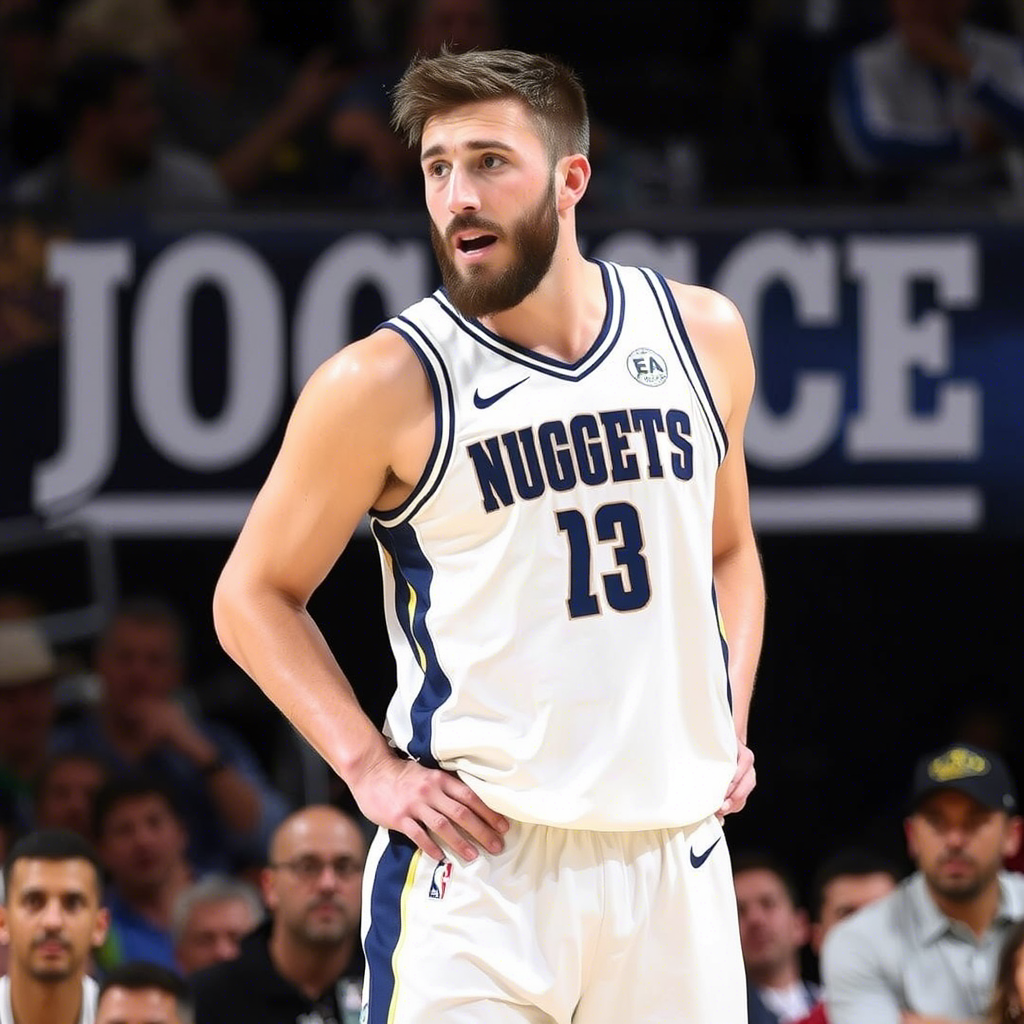Nikola Jokic faces new defensive schemes, like JJ Redick’s strategy of denying him the ball, leading to struggles for the Nuggets. Teams like the Kings and Lakers have successfully disrupted Denver’s offense. With playoffs approaching, the Nuggets must adapt or risk being derailed by this bold defensive gamble.
In a surprising twist, Nikola Jokic—the Nuggets’ three-time MVP—became both spectator and participant during Denver’s shaky 101-99 win over the Kings. Despite finishing with 22 points and 15 rebounds, Jokic struggled mightily, committing seven turnovers and posting a dismal minus-seven rating. His performance underscored a troubling trend since the All-Star break: Opposing coaches, led by the Lakers’ JJ Redick, have unleashed a daring defensive blueprint to neutralize the league’s most dominant playmaker.

Jokic’s Struggles: A New Defensive Strategy Exposed
Redick’s strategy, first deployed in Los Angeles’ February rout of Denver, is as radical as it is effective. Teams are now prioritizing denying Jokic the ball at all costs, even if it means abandoning conventional defensive principles. Against Sacramento, this meant Kings defenders swarmed Jokic the moment he touched the ball, while leaving Nuggets role players like Russell Westbrook and Peyton Watson open for midrange jumpers. The result? A clogged paint, stifled passing lanes, and a visibly frustrated Jokic forced into awkward shots and turnovers.
The scheme defies modern NBA logic, which typically prioritizes perimeter defense and three-point suppression. Instead, teams are conceding open threes (Denver attempts the fewest triples in the league) to erase Jokic’s devastating interior scoring. The Lakers, Celtics, and Kings have all used variations of this approach, with Boston recently holding Jokic to 20 points and zero free throws. Even Sacramento—a middling team without its full roster—flummoxed Denver’s offense until late-game collapses sealed their fate.
For the Nuggets, the writing is on the wall: If the Kings can execute this gameplan, any playoff opponent will. Denver’s reliance on Jokic-centric offense has left them vulnerable. While coach Michael Malone insists better defense will counter the tactic, that’s only half the solution. The Nuggets’ offense must adapt, whether by leveraging open threes for shooters like Michael Porter Jr. and Jamal Murray or reinventing Jokic’s role through more dynamic pick-and-roll actions.
Also read: Fox Returns to Sacramento: A Hero’s Homecoming or a Rival’s Revenge?
The playoffs loom, and time is running out. Opponents have exposed Denver’s one-dimensional attack, and the Nuggets’ championship aspirations now hinge on their ability to evolve—fast. As one Western Conference scout put it: “If they don’t adjust, they’ll be hunting for answers when it matters most.”

For now, Jokic and the Nuggets face a pivotal choice: Innovate or risk becoming the league’s most high-profile cautionary tale.
Nuggets’ Jokic Stymied by Revolutionary Defensive Strategy as Playoff Concerns Mount
In a surprising twist, Nikola Jokic—the Nuggets’ three-time MVP—became both spectator and participant during Denver’s shaky 101-99 win over the Kings. Despite finishing with 22 points and 15 rebounds, Jokic struggled mightily, committing seven turnovers and posting a dismal minus-seven rating. His performance underscored a troubling trend since the All-Star break: Opposing coaches, led by the Lakers’ JJ Redick, have unleashed a daring defensive blueprint to neutralize the league’s most dominant playmaker.
Redick’s strategy, first deployed in Los Angeles’ February rout of Denver, is as radical as it is effective. Teams are now prioritizing denying Jokic the ball at all costs, even if it means abandoning conventional defensive principles. Against Sacramento, this meant Kings defenders swarmed Jokic the moment he touched the ball, while leaving Nuggets role players like Russell Westbrook and Peyton Watson open for midrange jumpers. The result? A clogged paint, stifled passing lanes, and a visibly frustrated Jokic forced into awkward shots and turnovers.
The scheme defies modern NBA logic, which typically prioritizes perimeter defense and three-point suppression. Instead, teams are conceding open threes (Denver attempts the fewest triples in the league) to erase Jokic’s devastating interior scoring. The Lakers, Celtics, and Kings have all used variations of this approach, with Boston recently holding Jokic to 20 points and zero free throws. Even Sacramento—a middling team without its full roster—flummoxed Denver’s offense until late-game collapses sealed their fate.
For the Nuggets, the writing is on the wall: If the Kings can execute this gameplan, any playoff opponent will. Denver’s reliance on Jokic-centric offense has left them vulnerable. While coach Michael Malone insists better defense will counter the tactic, that’s only half the solution. The Nuggets’ offense must adapt, whether by leveraging open threes for shooters like Michael Porter Jr. and Jamal Murray or reinventing Jokic’s role through more dynamic pick-and-roll actions.
The playoffs loom, and time is running out. Opponents have exposed Denver’s one-dimensional attack, and the Nuggets’ championship aspirations now hinge on their ability to evolve—fast. As one Western Conference scout put it: “If they don’t adjust, they’ll be hunting for answers when it matters most.”
For now, Jokic and the Nuggets face a pivotal choice: Innovate or risk becoming the league’s most high-profile cautionary tale.
